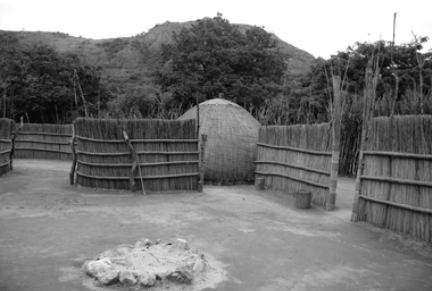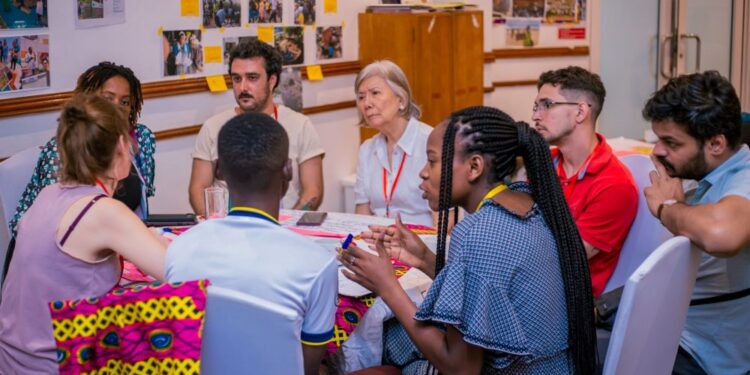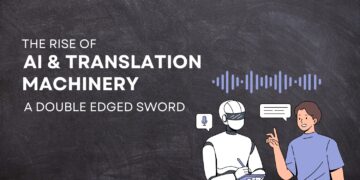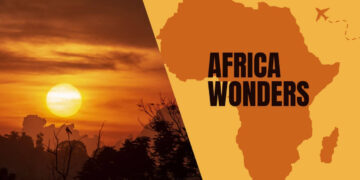One of the greatest concerns for people with deep knowledge of indigenous African languages and by extension knowledge of cultures, is how they can translate this into some economic gains. This is especially with globalization and competition between globally recognized languages like English, French, German, Chinese amongst others for speakership.
Kiswahili is a globally used language with equal importance as these globally recognized languages. It is acknowledged by international organizations like the United Nations as the only African language within the Directorate of the Global Communications at the United Nations and adopted by international media organizations like BBC, Turkish Broadcasting Corporation amongst others. Yet, Kiswahili is yet to be fully appreciated and utilized in national and international communications and formal education in Africa where it has its origins.
In this regard, Kiswahili speakers and experts possess wealth of experiences that can be turned into potential sustainable income. While most media houses within Africa have adopted the use of African languages within their productions and publications, it is important to note that there are more job opportunities to be harnessed beyond the journalism industry.
This article therefore shares some career opportunities that people with deep knowledge of indigenous African languages and cultures can take advantage of.
African Languages: Translation, Interpretation and Voice overs
The language services industry has created opportunities for individuals with knowledge in indigenous African languages and cultures to explore. The need for translators, interpreters, and voice over artists for African languages keeps rising as the African continent continues to invest in its indigenous resources and languages for its global presence.
Companies like Bolingo Consult are in constant need of voice over artists and run such advertisements in all their social media spaces. Yet, one can sign up through their website for opportunities in translations, interpretation and research. Informally, while individuals and groups can self-learn indigenous African languages, most often individuals and groups, especially international visitors, need some tuition in indigenous African languages.
Moreover, indigenous language teachers and consultants are in high demand as instructors especially in urban-based schools. Apart from this one you can also consider being a multiculturalism educator, an education resource specialist or even an indigenous education specialist. If one is driven by passion and invests in their indigenous knowledge by reading and researching more into the language, chances are that within no time you can create a sustainable and rewarding job for yourself and put your knowledge into use.
Oluwadamilare Igbayiloye, a language service provider and founder of Akonilede Yoruba – an online platform for learning Yoruba, shares in an interview here with Nat King Taylor on Africa’s LSP Podcast by Bolingo Consult, about how it took her ten years before she finally put into use her Bachelors Degree in Yoruba. This means that while there is economic potential in indigenous African language speakers and teachers, one must invest in their skills to gain profits.
For job seekers, connecting with people and firms in the language service industry, while keeping abreast with developments and transformations in the industry itself, is a better way to increase chances for job opportunities.
Community based work
With one’s knowledge in indigenous languages and cultures, several community based jobs present themselves as profitable ventures to explore. In the previous article on ‘scaling the sustainable development goals through African languages’, the role of community based workers had been emphasized as very important as they are the among the most relevant people to engage with when messages must reach local people.
For instance, as a community-based researcher, one can work within a community, maintaining relationships through engaging and recruiting the community to participate in research activities in their local language as well as their cultures which one is aware of due to indigenous knowledge of the language and culture of that community.
Aside from this, due to one’s knowledge of the indigenous language and culture of particular communities, they are highly sought for as the appropriate person in the interpretation of the data collected during field research and in the analysis and presentation of research results. Other areas of community based work for indigenous language experts include being a youth worker, grant writer, community development worker, community support worker, community program coordinator, community services employee or a community-university liaison. The income gains from these jobs can be enormous.

African languages for Education, Content Creation and Films
Oluwadamilare, referred to earlier in this piece, started her working stint by teaching Yoruba to her neighbor’s children for free. Overtime, she built a larger audience and transformed her work into a sustainable income generation activity. Currently she runs an online platform for learning Yoruba – Akonilede Yoruba – where you can learn everything you need to know about the language and the language itself.
In this regard, an indigenous language teacher or consultant is worth considering and investing in. Drawing from Oluwadamilare’s experiences over the years, it is an assurance that for both teachers and learners, indigenous African languages can be a source of insightful experience and fun.
Content creation and films in indigenous African languages can actually be used for purposes of edutainment – education and entertainment. With the fast growing set of technologies Africa’s global presence is beginning to be felt, and one of the key resources for this is technology-based consumption of indigenous languages in content creation and films.
Many talented content creators are taking advantage of platforms like YouTube, TikTok, Instagram, Facebook, Netflix amongst others to showcase their languages and cultures. The African animation scene in particular is booming, according to an article by BBC.
With the continent having over 2000 languages and more, this means that there is room for everyone to explore this venture. Examples of innovative indigenous African languages-based programs include Akili and me – produced by Ubongo Kids, Bino and Fino – created by Nigerian Animator Adamu Waziri, that is broadcast in English, Twi, Yoruba, Igbo, Hausa, Swahili and other foreign languages, Ẹbí Fọ́lọ́runṣọ́ an animation series teaching Yoruba – created by Kayode Oloko, the Anilingo Series by IyinCreative – an animation and illustration company whose goal is to preserve the African cultural heritage through educative animated content.
Others include CMR Kidz TV from Central Africa engaging young Cameroonian kids in the Ewondo and Dioula languages, Zulu Kids and Xhosa Kids from South Africa. The list of content creation is endless and we will look at it in another article.
Conclusion
With a creative and intelligent mind, it is not difficult for people with knowledge in indigenous African languages and cultures to create jobs for themselves, and indeed for others.
Other fields that can be explored include academia, the creative arts, government and administration. Despite the lack of support or proper investment in the knowledge of indigenous languages and cultures by African governments as alluded to by the Association for the Development of Education in Africa (ADEA), people with this kind of knowledge should be encouraged to lend their knowledge and skills to the public nonetheless.
They should create platforms where they can share their knowledge and creativity with the rest of the world. Most of the platforms, like YouTube and TikTok are free to register and create an account and if well managed can be a good source of income. Moreover, in this year’s 2023 Africa NXT Conference, most of the speakers made a call to content creators to focus on telling authentic African stories in local languages.
This is according to an article titled, ‘We need to create authentic African stories in local languages – Africa NXT Conference speakers urge’, by Emelike Obinna. A caveat may be useful here though, that while economic gain is a potential opportunity to be harnessed in indigenous languages, those who possess the knowledge should also be motivated by African social and cultural renaissance goals to help others know more about their local languages, without necessarily attaching monetary values to their help.









